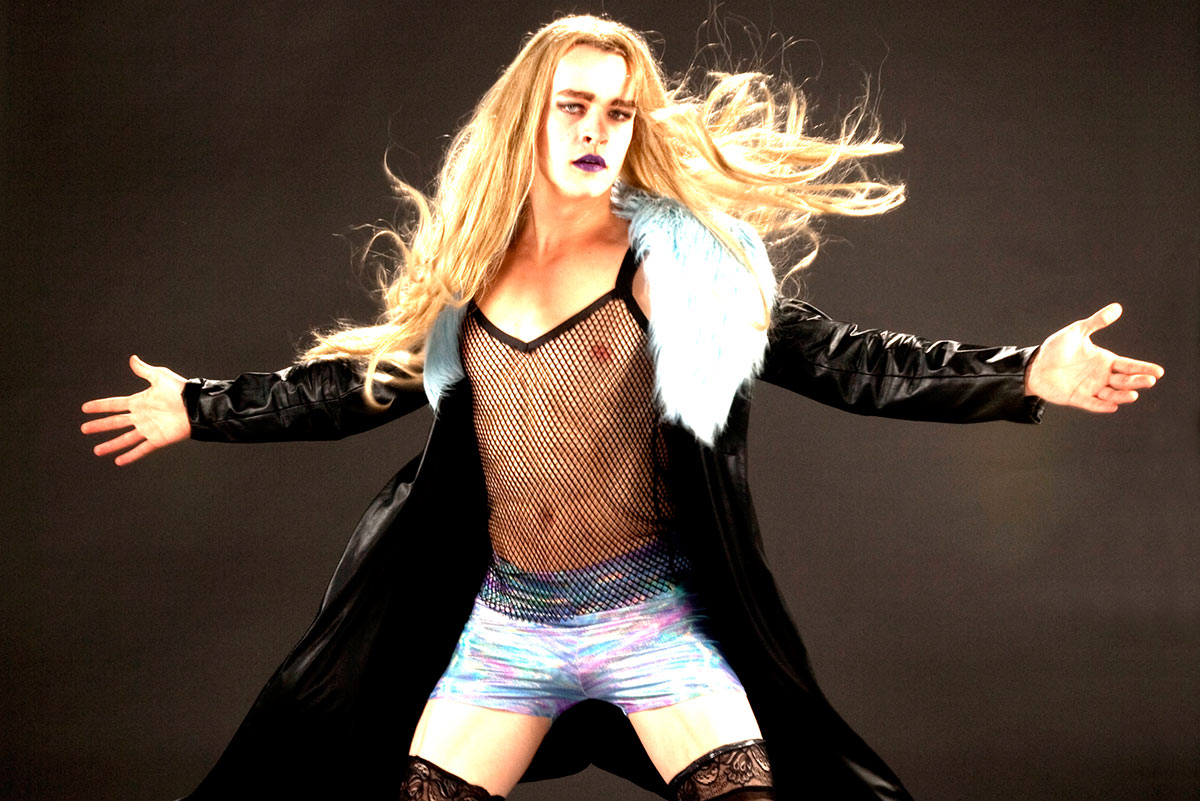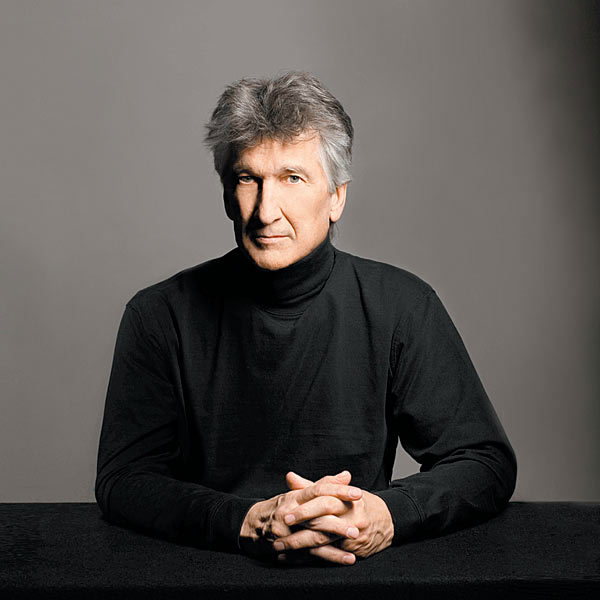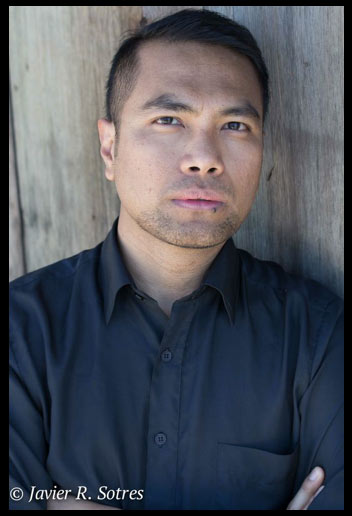-and-the-cast-of-The-Bacchae-2.1-Photo-Tim-Matheson_1200_613.jpg) Photos by Tim Matheson
Photos by Tim Matheson
THE BACCHAE 2.1
By C H A R L E S L . M E E
Based on the play by Euripides
Directed by Dennis Gupa
January 22 – February 7, 2015
Presented by the
Department of Theatre & Film
Frederic Wood Theatre
6354 Crescent Rd.
UBC MAP: http://bit.ly/94dLm6
University of British Columbia
Vancouver CANADA
CURTAIN: 7:30 p.m.
![]()
WARNING:
Explicit Content
TICKETS: Reg. 24.50/Senior $16.50/Student $11.50/Youth $9/Groups $2 off ~ all charges included/Student Rush $7/UBC Alumni $10
$7 Preview: Jan. 21
Talkback: Jan. 28
Expect the unexpected from Charles Mee’s richly poetic creation The Bacchae 2.1. In addition to Euripides’ classic Greek tragedy, the script draws from German literary theorist Klaus Theweleit’s Male Fantasies, Valerie Solanas’ The S.C.U.M. Manifesto and Joan Nestle’s Lesbian Herstory Archives. All find their place in Euripides’ theatrical celebration of the god Dionysus, set in a world both ancient and modern.

Actor: Thomas Elms. Photo credit: Tim Matheson
![]() WARNING:
WARNING:
Explicit content.
Click here to read the full script of The Bacchae 2.1 online.
Expect the unexpected from Charles L. Mee’s subversive and richly poetic creation The Bacchae 2.1. In addition to Euripides' classic Greek tragedy, the script draws from German literary theorist Klaus Theweleit's “Male Fantasies”, Valerie Solanas' “The S.C.U.M. Manifesto” and Joan Nestle's “Lesbian Herstory Archives”. All of these explosive works find their place in Euripides' theatrical celebration of the god Dionysus, set in a world both ancient and modern. American playwright Charles L. Mee often gets his mitts on the Greeks and shakes them around till their teeth rattle. The Bacchae 2.1 gives us Dionysus as a transvestite in thigh highs and combat boots.
“Striking juxtapositions create word images of remarkable beauty.” – Theatre Man
Playwright Charles L. Mee is an American playwright, historian and author known for his collage-like style of playwriting, which makes use of radical reconstructions of found texts. He is also a professor of theater at Columbia University. Among other awards, Mee is the recipient of a lifetime achievement award in drama from the American Academy of Arts & Letters and two OBIE Awards (Vienna: Lusthaus (1986) and Big Love (2002). His plays are available at www.charlesmee.org and as a free iPhone app.
MFA Directing Student Dennis Gupa’s past credits include Frank Wedekind's Spring Awakening, John Millington Synge's Riders to the Sea, August Strindberg's A Dream Play, Brian Friel's Lovers (Winners) and a devised theatre piece based on Carlos Bulosan's life and works, I Am Not A Laughing Man. Dennis was a director-in-residence with Ma-Yi Theater Company and has worked with National Asian-American Theatre Company, both based in New York City. In 2011/12 through the Indonesian Ministry of Education he studied seni topeng (mask dance) in Sekolah Tinggi Seni Indonesia. He received his MA in Theatre from University of the Philippines where he is an Assistant Professor.
The Bacchae 2.1 features original music performed live and stars BFA acting ensemble students Ghazal Azarbad, Mariam Barry, Nathan Cottell, Francis Dowlatabadi, Thomas Elms, Helena Fisher-Welsh, Matt Kennedy, Allyce Kranabetter, Jenna Mairs, Demi Pedersen, Meegin Pye, Kelsey Ranshaw, Selene Rose, Joylyn Secunda, Parmiss Sehat, Javier Sortes and Elizabeth Willoughby. The creative team includes BFA Design students Natalia Ruiz (Set), Eric Chad (Lighting & Media Composition), Kiara Lawson (Costumes) and Kate De Lorme (Sound) with Curtis Li (Stage Manager).

My own work begins with the belief that human beings are, as Aristotle said, social creatures—that we are the product not just of psychology, but also of history and of culture, that we often express our histories and cultures in ways even we are not conscious of, that the culture speaks through us, grabs us and throws us to the ground, cries out, silences us.
...the culture speaks through us, grabs us and throws us to the ground, cries out, silences us
I don't write "political plays" in the usual sense of the term; but I write out of the belief that we are creatures of our history and culture and gender and politics—that our beings and actions arise from that complex of influences and forces and motivations, that our lives are more rich and complex than can be reduced to a single source of human motivation.
So I try in my work to get past traditional forms of psychological realism, to bring into the frame of the plays material from history, philosophy, insanity, inattention, distractedness, judicial theory, sudden violent passion, lyricism, the National Enquirer, nostalgia, longing, aspiration, literary criticism, anguish, confusion, inability.
I like plays that are not too neat, too finished, too presentable. My plays are broken, jagged, filled with sharp edges, filled with things that take sudden turns, careen into each other, smash up, veer off in sickening turns. That feels good to me. It feels like my life. It feels like the world.
And then I like to put this—with some sense of struggle remaining—into a classical form, a Greek form, or a beautiful dance theatre piece, or some other effort at civilization.

"This realization of the "impossible" is the strongest fascination and the deepest secret of art. This realization is an act of our imagination and of a sudden, spontaneous, desperate decision to cling to unprecedented, absurd, ridiculous possibilities that are beyond our imagination rather than to the process...To pull the "impossible" into it, one must lack experience, be a rebel, be insatiable, defy all the laws, be in a state of absolute emptiness. Needless to say one has to be in the grip of the feeling of the "impossible." - Tadeusz Kantor
I saw my country in mutiny from the roof of our house. The clouds were bright and the hissing sound of the Tora Tora planes circling around our city riveted me. I was atop the history unfolding from the womb of my nation's memory that day in February. My sister and I watched these planes from the top of our house so close that I could almost see the pilot. That afternoon, my brother and my cousins joined thousands of civilians, church leaders, and students marching down the street of EDSA as an act of civil resistance against Pres. Ferdinand Marcos and his cohorts from what Filipinos believed to be two decades of despotic regime, fraud, and embezzlement of government funds. Known as The 1986 People Power Revolution, this bloodless civil resistance led the Marcoses to flee for Hawaii as exiles. The wife of the assassinated Senator Benigno Aquino, staunch opposer of Marcos, took the presidential seat, but the political tensions heightened even more by coup attempts including the God Save the Queen Plot intending to overthrow her. A call for change and transformations were prefaced with a series of natural catastrophes: Luzon’s 7.8 magnitude Earthquake and the Mt. Pinatubo volcanic eruption that produced an avalanche of mudflows that deluged an entire province in ash. When I first saw pelting snow in New York City, I was petrified; I thought it was the ash fall from the spewing mouth of Mt. Pinatubo. My memory of survival re-visited me and the past haunted me with terror, making me asking myself, "how far is my body, home, and nation from the memory of misery and ache of living?" As a society, the modern day Philippines remains deeply rooted in religious ritual and similarly fearful of the wrath of an avenging God brought on by the transgressions of its leaders. I lived in the times of hopelessness, a history of danger. The seismic impact of this past reverberates in my act of creating. In the process of my imagination, I seek the birthplace of the god of creation, discovering him/her in silence and in rage, in danger and in peace, in loathing and in love.
First seen in 405 BC at the Theatre of Dionysus, this Euripidian tragedy tells the story of Agave and how she is driven to mistakenly kill her son, Pentheus, as a punishment for his refusal to worship the god of fertility and wine, Dionysus. This production is a re-imagination of Euripides’ The Bacchae via Charles Mee's The Bacchae 2.1 as an expression of intercultural and contemporary theatre. When cultures are mixed and blended, it forms an evocative style of artistic expression allowing dialogues to open between people of various cultural backgrounds. As such, artistic forms are fused to transcend cultural differences in search of an understanding of the global human condition and to dismantle polarization is the call of this project. Rooted in my heritage, I locate myself in the center of this modern and technological world where I wish to contribute in the knowledge production, new myth-making, and aesthetic forms that encourage and celebrate human diversity in contemporary times.
I would like to thank my directing supervisors: Stephen Malloy for the sustained, enlightened and beautiful mentorship to train my eyes to look at the text as the origin of actions from which the birth of meanings blossom, Tom Scholte for his wise guidance allowing me to feel and commit to the spine of expression, and to Stephen Heatley who reminded me of what collaboration in theatre process can yield. Three wonderful men of integrity and imagination, whose life in the theatre are signposts of my continuing quest for directing. I am appreciative of Gayle Murphy and Cathy Burnett for their constant support in my creative process, and of the cast who joined me in this quest for the "impossible". Thank you to the designers and crew for their openhearted collaboration. I would like to express my gratitude to Alvin Tolentino and Marilou Carillo for their most propitious help and love; Leonora Angeles and Murray Forster for the palpable spirit of care, generosity and faith. I am grateful for the Dorothy Somerset Memorial and the Dream Cather in Theatre Scholarships for helping theatre artists thrive in the world obsessed with commerce and monstrous capitalism.
The masks and the faces of the women in this production bear witness to the dangerous lives human have traversed. They are signifiers of the wounded past gone by and the anticipation for a better future. Amidst unbearable heaviness of life, hope is possible and it lies in the bones, blood, and the wild hearts of the women. I am deeply grateful to see you in the theatre.
-- DENNIS D. GUPABC Vancouver, Canada
Assistant Professor